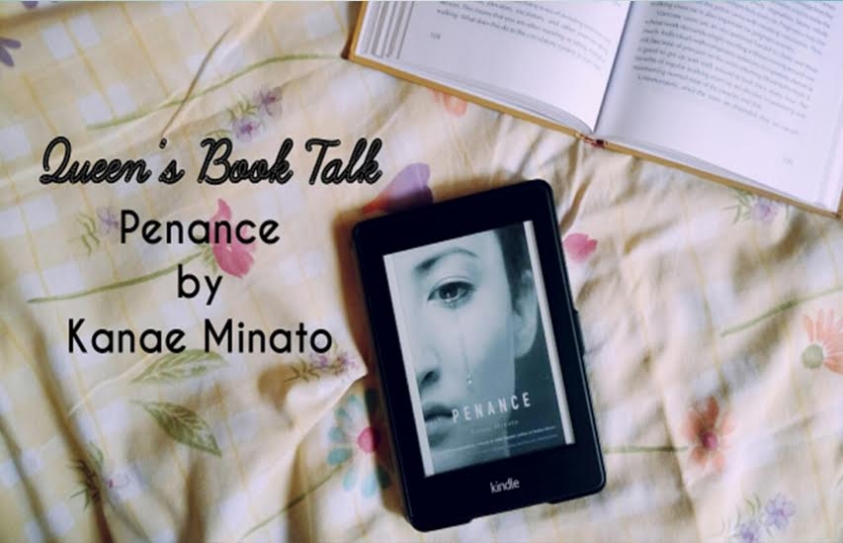It’s taken a while for this 2012 to come out in an English translation, but it was worth the wait for readers of Japanese crime fiction (Keigo Higashino is already a bestseller). Kanae Minati’s novel Penance has been released with Philip Gabriel’s translation (he has translated Haruki Murakami).
The story is dark and morbid, but absorbing enough to complete in a single marathon reading session. Set in un unnamed town distinguished from other regular place by the purity of its air, Penance is the story of four friends, Sae, Akiko, Maki and Yuka, scarred by a childhood incident.
They are about ten years old when a new factory in their town brings an influx of city people, who look down on the unsophisticated residents. Among them is their classmate Emily, who somehow joins the gang in spite of her superior ways.
Emily is raped and killed while the girls are playing by the school’s poolside. All four saw the killer, but when questioned by the cops, cannot recall his face. Emily’s grief-stricken mother Asako accuses the children of abetting the crime, because the murderer is never caught.
The girls are shocked and traumatized by their friend’s murder, but are just about coming out of it when Asako, before returning to Tokyo, summons the four and tells them: “I will never forgive you, unless you find the murderer before the statute of limitations is up. If you can't do that, then atone for what you've done, in a way I'll accept. If you don't do either one, I'm telling you here and now -- I will have revenge on each and every one of you. I have far more money and power than your parents, and I'll make you suffer far worse than Emily ever did.”
The girls are too young to realise the rage and sorrow behind a mother’s words; their lives are marked by it, and affected in tragic ways. The fear of possible retribution at the hands of either the killer or Asako, wrecks their happiness. They try to atone in their own way, even though they were not at fault and there is no way they can trace the killer.
The book follows the lives of each of them and examines how they engineer their own doom—they are punished for a tragedy in which they played no part, and could not possibly have prevented.
The story may be a bit too schematic in the way the girls’ stories turn out, but Minato makes the reader care for them and also gives a sharp glimpse of contemporary Japanese society from the point-of-view of various mother-daughter relationships—fathers play little or no part in their childrens’ upbringing and seem not to interfere in household matters. When the horrific incident takes place, in the midst of the Obon (a Japanese festival to honour the spirits of ancestors), the mother rush to their daughters’ aid, the dads are supposedly enjoying their food and drinks with visiting relatives. Surprisingly, however, no mother understands her daughter’s plight, but a kindly policeman does.
It’s not a pleasant read, but unputdownable all the same.
Penance
By Kanae Minato
Translated by Philip Gabriel
Publisher: Hachette
Pages: 240
Breaking News
- Thought Factory
THOUGHT FACTORY: DISCOVERING MAHARASHTRA'S COOL RETREATS
0 - Alternative Entertainment
ALTERNATIVE ENTERTAINMENT: THE RIVER OF LIFE
0 - Kaleidoscope
KALEIDOSCOPE: ANURAG ANAND - THE STORYTELLER ARTIST
0 - Bollywood
BOLLYWOOD: CHORI MERA KAAM OR CHOR-EO-GRAPHY
0 - Business and Politics
POLITICS: SHADOW OF DOUBT ON ELECTION PROCESSES
0 - Alternative Entertainment
ALTERNATIVE ENTERTAINMENT: MAINSTREAM VS. ALTERNATIVE PERSPECTIVES
0 - Kaleidoscope
KALEIDOSCOPE: A TALE SET IN THE TIMES OF ANARCHY
0 - Bollywood
BOLLYWOOD: FRANK & FEARLESS, GULZAR…UNCUT!
0 - Thought Factory
THOUGHT FACTORY: ESCAPING THE HEAT
0 - Festivals
FESTIVALS: KASHISH PRIDE FILM FESTIVAL UNVEILS NEW LOGO
0
Thought Box
Long Arm Of Fear Keigo Higashino Kanae Minati Penance Sae Akiko Maki and Yuka Philip Gabriel Hachette Kaleidoscope- Long Arm Of Fear DeepaGahlot





-173X130.jpg)
-173X130.jpg)

-173X130.jpg)
-173X130.jpg)


